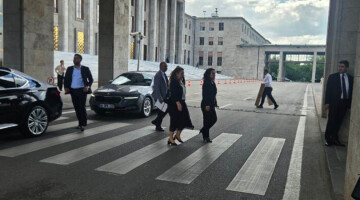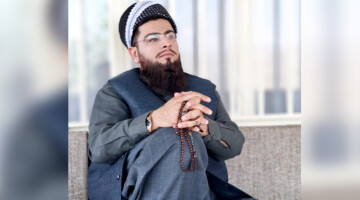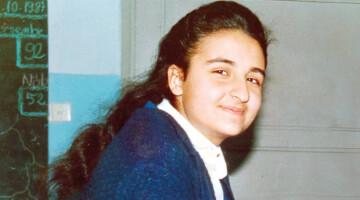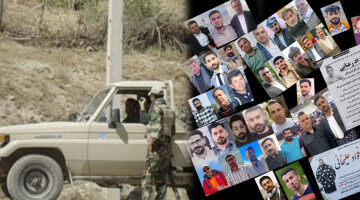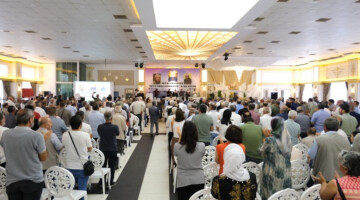The Turkish state’s new concept of war, that became official after the bombing of Kurdish mountains, villages, and children by tens of warplanes, and Erdoğan’s declaration that they ended the process of resolution, has and will continue to have implications for the relations between Kurds. South Kurdistan Regional Presidency issued a statement on the issue during the airstrikes, as Qandil villagers were trying to seek refuge after the destruction of their houses with F-16 bombs, and as children wounded by shrapnel pieces were on their way to the hospital.
Not a single sentence on the targeted civilians was mentioned in Massoud Barzani’s statement, which included some technical information and expressed concern at the end of the process of resolution. More importantly, KCK was held responsible for the air strikes of tens of warplanes. KDP’s approach enabled today’s Zergele massacre, just like the Turkish warplanes’ bombing of Qandil’s Kortek village where the 7 years old baby Solin and her family were massacred. KDP had not uttered a single word about this massacre either…
Exactly two hours after Davutoğlu’s statement that the operations would continue and the Turkish state would change interlocutors, Prime Minister Neçirvan Barzani declared his role in the new process and said that they were ready to be interlocutors. And of course, KDP did not refute Davutoğlu’s statement that they had informed Mr. Barzani on the operations, which means that they were aware that tens of F-16s were going to bomb areas within their borders. Children terrified by the sounds of warplanes will hold KDP responsible for this terrifying situation. They do not and will not give ear to KDP officials’ statement suggesting that AKP was forced to carry out this attack.
Lets move on now and have a look at the dance between AKP and KDP…
Mr. Abdullah Öcalan sent numerous letters to Mr. Massoud Barzani through the HDP delegation, and these letters aimed to hold the national congress. Unfortunately, KDP prevented the congress after it’s allies’ warnings and the calculation that ‘national unity would benefit PKK.’ KDP has not been bothered by its responsibility in the ISIS massacre in Shengal as much as it was bothered by PKK forces’ presence in Shengal. The same KDP became a Kurdish prop in AKP’s Rojava strategy.
The latest attacks reveal that KDP and AKP are not only in political and economical collaboration, but shared the same fate.
As luck would have it, KDP is experiencing in South Kurdistan the same political deadlock and uncertainty that AKP experiences in Turkey. Massoud Barzani has asked for a last chance two years ago, his presidency finishes in August, and is now demanding the extension of his term. Many political parties and non-governmental organizations, primarily YNK and Goran, object to this demand and defend the parliamentarian system as opposed to a presidency. KDP faces a serious political crisis in this regard.
Moreover, the people of the South find KDP to be passive in the face of ISIS. KDP’s looking up to royal families in several Arab countries and lavish spending receive criticism from the people. KDP is no longer considered as one of the parties that earned a political status for the people of South Kurdistan but as a party that serves powers who would like to use this status against Kurdish people. The people of the South regret KDP’s contradiction with the struggle it led in the past.
Political atmosphere is intense in South Kurdistan due to the reasons mentioned above. This intensity is crystal clear in the reactions to the air strikes of the Turkish state. All parties and organizations except KDP, and more importantly the masses that took to the streets, showed a clear stance against the attacks.
In the midst of all these, a delegation led by Turkish Foreign Affairs Ministry Undersecretary Feridun Sinirlioğlu visited KDP, YNK and Goran representatives and Mam Celal in Hewler (Erbil) and Sulaymaniyah.
According to the information I received from YNK and Goran representatives who participated in the meetings, Sinirlioğlu and his delegation have two main demands from parties in South Kurdistan:
1- Extension of Barzani’s presidency, in exchange for the consolidation of political and economic collaboration.
2- Stance, or at least neutrality, against PKK in exchange for collaboration in South Kurdistan, Turkey and Rojava (‘Our problem is with PKK, not with Kurdish people’).
The Turkish delegation approached Southern parties with these demands, but did not like the responses it received. Goran and YNK representatives state that the Turkish delegation’s meeting with the Barzanis was more comprehensive, and that they were not informed well about this meeting. PKK, Goran, YNK and other parties and circles do not see harm in KDP relations with Turkey, but are uncomfortable about the transformation of these relations into an anti-Kurdish collaboration.
The impression Sinirlioğlu gave during the meetings in South Kurdistan is that the Turkish state would carry out land operations after its air strikes. How realistic this is will be seen soon enough.
KDP wants to overcome its political problems in the South and its lack of a presence in Rojava by appropriating the legacy of PKK. It believes that it will be stronger if PKK is defeated.
However, KDP will be more successful as a political party in Kurdistan if it builds its political future on a national and social vision as opposed to the elimination of others. It will soon become clear that KDP’s linking of its political future to the success of AKP will harm KDP more than others, and a weaker PKK will not translate as a stronger KDP. On the contrary, a weaker PKK will result in the degradation of KDP in the view of the Turkish state.
Despite all these, it is not too late. At the end of the day, AKP’s war and annihilation concept will fail. KDP must see this and continue its criticism of and opposition to PKK policies positively, in a way that all parties should do.
But the policy of supporting AKP and being bombed by the same AKP deserves to be called something else than politics, criticism and opposition. KDP should abandon its mistake if it would like to be remembered differently in Kurdish history…
*This piece by journalist Amed Dicle was translated from Turkish by ANF English service.






